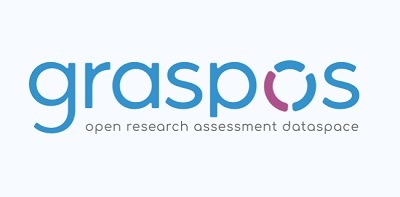
GraspOS
Next Generation Research Assessment to Promote Open Science
GraspOS aims to enable a rewards and recognition system based on a new generation of (qualitative or quantitative) metrics and indicators, leading to a culture and system change that increases the quality and impact, the creativity and the transparency of and trust in science.
The project will focus on enriching the EOSC ecosystem with tools and services that will facilitate the collection of information necessary to produce the new emerging research assessment indicators and the monitoring of the use and uptake of various types of research services and outputs (e.g., publications, datasets, software, practices).
GraspOS will offer data, tools, services and guidance to support and enable policy reforms for research assessment, more specifically delivering:
- An Open Science Assessment Framework (OSAF) and related supporting tools (e.g., openness profiles for organisations and individual researchers) (WP2)
- Data and services to produce metrics (WP3)
- Services to access metrics (WP4)
- Learning materials for researchers, research and funding performing organisations (WP2+WP6)
As indicators, tools, services and infrastructure applied in assessment and monitoring should be based on community needs, GraspOS brings together different stakeholder communities to co-design and co-create them.
- Nine real-life pilots (WP5), which (a) represent different types of OS enabled research assessment (funders, national stakeholders, research performing organisations, research communities), and (b) ensure that metrics and indicators are created for specific needs, not the other way around.
- Community of practice (WP6), which (a) consists of communities around OS and/or RA, and (b) is involved in the design, development, testing and validation of the OS infrastructure being developed in GraspOS
CSC leads GraspOS’s WP5, Pilots, which will define, develop and showcase nine pilots that will drive the development and delivery of all GraspOS services, tools, and infrastructure. The pilots will:
- provide input and requirements from researchers, officers, service providers
- test and validate indicators and metrics, tools and the infrastructure to ensure adoption
- build the basis for adoption of the new generation metrics and OMFI and related tools
- act as champions in respective communities.
In addition, CSC will contribute to the work package on management and coordination, and several tasks around for example Open Science Assessment Framework, tools & services landscaping, and infrastructure architecture.

